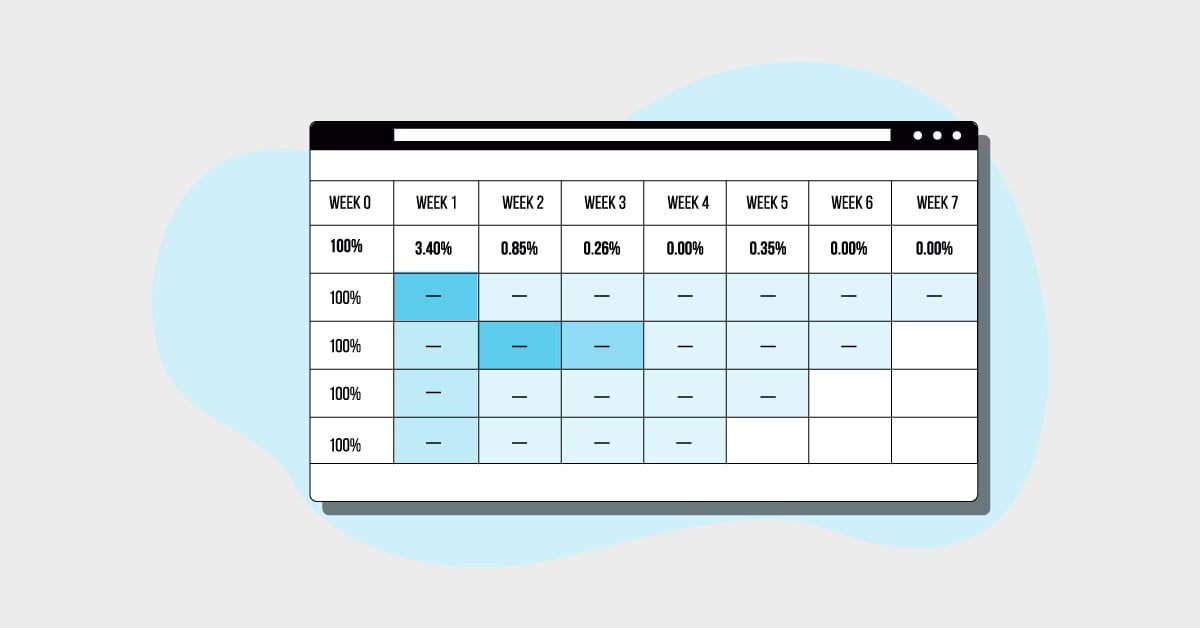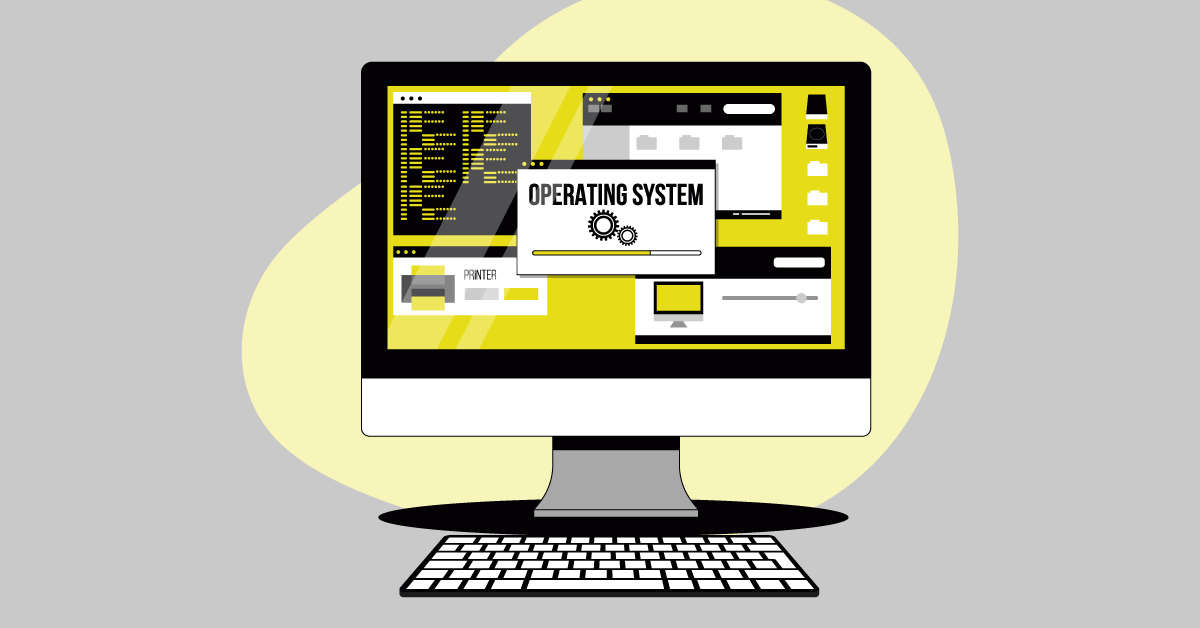Feeling overwhelmed by the buzz around AI in software testing? You're not alone. It's a rapidly changing landscape, but there's a way to make it work for you. This post offers a clear pathway to understanding AI in software testing, plus actionable steps to create your own learning roadmap. Whether you're looking for a comprehensive AI testing courses online, an ai tester course to boost specific skills, or guidance on building your AI expert roadmap, we'll help you find the resources you need to succeed. Let's explore the world of AI in software testing together.
In this article, let’s take a step-by-step approach to help you understand the power and limitations of Generative AI (Gen AI) in testing. Each step will include links to several resources to help you get started. However, you will need to conduct your own research as you delve deeper into a topic.
Key Takeaways
- Generative AI tools can automate tedious testing tasks: Streamline activities like test data generation, report drafting, and documentation summarization, allowing you to focus on higher-level testing strategies and complex problem-solving.
- Effective AI use requires strong prompt engineering skills: Mastering prompt engineering is crucial for guiding AI models to produce accurate and relevant outputs. Practice crafting precise prompts to maximize the value you get from AI tools.
- Stay ahead of the curve by continually exploring AI advancements: The AI landscape is constantly changing. Engage with new tools and resources, connect with industry experts, and prioritize continuous learning to maximize your potential in this rapidly evolving field.
Step 1: Generative AI in Testing: What You Need to Know
Gen AI Fundamentals
The first step towards learning Gen AI as a tester is to understand the fundamentals and various use cases of implementing AI in testing.
Let’s have a look at some practical resources that I recommend on this topic:
- Introduction to AI/ML in Software Testing: AI and Machine Learning Apps in Software Testing (muuktest.com)
Before diving into Gen AI, it’s essential to understand the basics of Artificial Intelligence (AI) and Machine Learning (ML). This blog covers the basic aspects of AI & ML Apps in software testing.
- Introduction to Generative AI: Generative AI – What is it and How Does it Work? (nvidia.com)
Generative AI is a branch of AI that focuses on creating new content. Unlike traditional AI, which analyzes existing data, Gen AI generates new data based on patterns. This article from Nvidia will help you understand the basics of this topic.
- Conceptual Guide to Transformers: A Conceptual Guide to Transformers: Part I (substack.com)
Transformers are the backbone of many Gen AI models. They use attention mechanisms to process input data and generate output. This multiple-part blog series covers everything from the basics to the advanced ideas on how transformers work.
- What is ChatGPT Doing and Why Does It Work?: What Is ChatGPT Doing … and Why Does It Work?—Stephen Wolfram Writings
ChatGPT uses transformers to understand and generate human-like text. It works by predicting the next word in a sentence based on context. This article by Stephen Wolfram talks about how it all works and makes sense. This piece will help you understand why sometimes it works and sometimes it doesn’t.
- The Rise of Generative AI: Judgement Day” with Tariq King, PhD: StarWEST 2023 Keynote
For a high-level overview of the basics, I recommend watching Tariq King’s talk on “The Rise of Generative AI.” as he explains the transformative potential of Gen AI in testing and beyond.
What is Prompt Engineering?
Prompt engineering is crucial for working with Generative AI, especially in software testing. It involves crafting specific inputs, or "prompts," to guide AI models toward the desired outputs. Think of it like giving clear instructions to a very literal-minded assistant. The way you phrase your request directly impacts the results.
AWS defines prompt engineering as "a process that involves guiding generative AI to produce desired outputs.” The prompt's structure significantly influences the quality and relevance of the AI’s response, making it a vital skill for testers using AI in their workflows. Learning prompt engineering can enhance your ability to use AI in various testing phases, including planning, execution, and reporting. A Udemy course on AI in software testing emphasizes this, highlighting its practical applications.
As you explore integrating AI in testing, understanding prompt engineering will empower you to create more effective and tailored AI interactions, ultimately leading to improved testing outcomes.
How is Gen AI Used in Testing?
Now that we have a solid foundation, let’s explore various ways how Gen AI can revolutionize software testing.
Generation / Transformation- Test Data Generation: Gen AI can create diverse test data sets, saving a tester, hours of manual work.
- Test Idea Generation: Need fresh test ideas? Gen AI can give innovative scenarios.
- Test Notes Transformation: Transform raw test notes into structured reports effortlessly.
- Changing Data Format: Convert data formats seamlessly with Gen AI.
- Bug Report Drafting: Draft detailed bug reports quickly.
- Email Drafting: Automate email communication with stakeholders.
- Programming Code: Generate code snippets for test automation.
- Requirement Analysis: Extract key requirements from documentation.
- Extracting Notes: Extract important information from your notes.
- Questions: Identify ambiguities in requirements.
- Specific Data Patterns: Detect specific patterns in data files.
Summarization
- Product Documentation: Summarize lengthy product documents for quick learning.
- Market Research: Condense market research findings to find key risk areas, or opportunities.
- Test Strategy: Create concise test strategies or easily get a summary of a test strategy on an existing project.
- Testing Notes: Summarize testing sessions.
- Domain Concepts: Learn domain-specific knowledge.
- Error Messages: Understand common error messages and how to debug and fix them..
- Programming Concepts: Get examples and explanations for programming concepts.
- AI Concepts: Deepen your understanding of AI concepts and terms.
Disclaimer: Don’t share sensitive data on publicly trained LLMs. Use licensed tools where data is secured or mask sensitive data before feeding it to LLMs.
Step 2: Explore AI Testing Tools and Resources
Where to Find AI Testing Inspiration
AI in Testing is a growing field. There are new updates, resources, tools, tactics, etc. coming out each day. To stay ahead in the game, it’s crucial to learn from experts and follow good sources
- Conferences: Software Testing Conferences
This contains a list of software testing conferences to attend and find inspiration from. You can visit the conferences happening near you or go for virtual conferences. Make sure to filter for AI Tracks or AI focused sessions of your choice when attending any conference.
- Webinars & Events: Testing Daily
This is an app that gives you live feed of all the software testing events and webinars taking place. You can find latest webinars and updates on AI in Testing directly from here.
- Blog: Follow blogs like MuukTest Blog for more posts on AI in Testing.
MuukTest is evangelizing the AI in Testing space with new tools and learning materials. Bookmark it!
- Video Series: AI in Testing by Rahul's Testing Titbits - YouTube
If you are a video learner, you can check out my video series on YouTube for a structured and continuous learning plan.
- Experts to Follow:
- James Bach | LinkedIn
- Rahul Verma | LinkedIn
- Michael Bolton | LinkedIn
- Tariq King | LinkedIn
- Rahul Parwal | LinkedIn
- Subbarao Kambhampati | LinkedIn
Video Resources for AI in Software Testing
As the field of AI in software testing evolves, video resources can offer valuable insights and structured learning experiences. Here are a few I recommend to deepen your understanding of Generative AI and its applications in testing:
- StarWEST 2023 Keynote: “The Rise of Generative AI” by Tariq King, PhD: This presentation provides a high-level overview of Generative AI’s transformative potential in testing and beyond. King discusses the implications of Gen AI and how it’s poised to reshape the testing landscape. He also touches upon the broader impact of AI on various industries.
- AI in Testing Video Series by Rahul’s Testing Titbits: This YouTube playlist offers a structured and continuous learning plan. The series covers various aspects of AI applications in software testing, from basic concepts to advanced techniques. This makes it a great resource for both beginners and experienced testers looking to expand their skillset.
These videos are excellent starting points for anyone wanting to improve their knowledge and skills in AI-driven testing methodologies. For those looking for more hands-on learning, consider exploring practical tools and resources to gain real-world experience with AI-powered testing.
Experiment with Gen AI Testing Tools
Experimenting with Gen AI in Testing tools is one of the best ways to learn and witness the potential those have for your use cases.
I would recommend you to try out any of these popular tools such as:
- Introducing Amikoo (muuktest.com)
- ChatGPT
- Google Gemini
- Gretel AI
- Claude AI, etc.
Step 3: Essential Skills and Risks of Gen AI in Testing
In this section, we will cover topics that will help you uncover the possibilities as well as challenges in using AI in Testing.
We will start with covering topics around core skills and then delve deeper into potential risks and other challenges that one needs to be aware of to make effective use of Gen AI in Testing.
1. Skills Required for AI in Testing: What Skills Are Required for an AI-Assisted Testing Team? (muuktest.com)This Mukktest article is a precursor to the current article and covers the various skills as well as supported resources for doing AI-assisted testing. It is highly recommended that you check this article out and get a foundational understanding of topics like:
- Basics of AI and ML
- Understanding Large Language Models (LLMs)
- Recognizing LLM Syndromes & Side-Effects
- Using AI Testing Tools
- Navigating AI Ethics
- Prompt Engineering Basics
2. Prompt Engineering: Mastering prompt engineering is key to effectively using Gen AI tools for your needs and context. Here are some curated resources for you to check out:
- Prompting Techniques: Prompting Techniques | Prompt Engineering Guide (promptingguide.ai)
This is a collection of prompting techniques with examples to help you master the fundamentals of prompting.
- Prompting Checklists: Prompting Checklist for Testers - Rahul's Testing Titbits
This is a collection of various hacks and tactics to help you create good prompts for your testing tasks.
- Prompting Hub: AI Prompt Repository for Testers - Rahul's Testing Titbits
This is a collection of ready-to-use prompts for popular testing use cases to help you get good responses from popular AI tools.
3. Critical Thinking on AI Claims: A Super-Quick Guide to Evaluating “AI” Claims – DevelopSense
4. LLM Reversal Curse Limitation: [2309.12288] The Reversal Curse: LLMs trained on "A is B" fail to learn "B is A" (arxiv.org)
5. Licencing & Compliance Risks: ChatGPT, OpenAI, Napster: AI is the future, and so are the lawsuits | VoxUpskilling for the Age of AI
Why Learn AI Testing Skills?
AI is rapidly transforming software development, and testing is no exception. Companies now need testers who understand how to test AI-powered systems and leverage AI to enhance testing processes. This shift creates exciting opportunities for testers to expand their skill sets and remain at the forefront of the industry. As AI becomes more integrated into software, understanding its nuances and potential pitfalls is crucial for effective testing. This includes knowing how to design tests that account for AI's probabilistic nature and how to interpret the results. Learning these skills not only increases your value in the job market but also empowers you to contribute to building more robust and reliable AI-driven applications. For a deeper dive into the world of AI testing, check out the ISTQB AI Testing Certification.
Addressing Concerns About AI's Impact on Testing Roles
It's natural to have some concerns about how AI might impact testing roles. However, rather than viewing AI as a replacement, consider it a powerful tool that can augment our capabilities. As AI continues to evolve, it’s crucial for testers to adapt and acquire new skills to remain relevant in the industry. This means focusing on developing uniquely human skills that complement AI, such as critical thinking, creativity, and strategic problem-solving. By embracing AI and learning how to use it effectively, testers can enhance their efficiency, uncover more complex bugs, and ultimately deliver higher-quality software.
Available AI Testing Courses and Certifications
Online Courses for AI Testing
Numerous online resources can help you develop your AI testing skills. Platforms like Coursera offer a wide variety of AI courses and certificates catering to different skill levels, from beginner to advanced. For those specifically interested in applying generative AI to testing, Udemy offers a course on Generative AI in Software Testing that teaches prompt engineering skills—a crucial aspect of working with these tools. These courses can provide a foundational understanding of AI concepts and their application in software testing.
Specialized AI Testing Training Programs
For a more structured learning experience, consider specialized training programs like the Coveros "AI for Testers" course. This hands-on training provides practical experience and equips testers with the knowledge and skills to apply AI effectively in their work. These programs often offer deeper dives into specific AI testing techniques and tools, providing a more comprehensive understanding of the subject. They can be particularly beneficial for those looking to specialize in AI testing.
The ISTQB AI Testing Certification
The ISTQB AI Testing certification is a valuable credential for demonstrating your expertise in this field. This certification covers key concepts and techniques in AI testing and can help you stand out in the competitive job market. It's a great way to validate your skills and signal your commitment to staying at the forefront of AI testing advancements. This certification is beneficial for testers who want to formalize their AI testing knowledge and enhance their career prospects.
Navigating the Risks of Generative AI in Testing
While generative AI offers immense potential, it's essential to be aware of the associated risks. One key concern is data security. When using publicly trained large language models (LLMs), avoid sharing sensitive data. Opt for licensed tools with robust security measures or mask sensitive data before using it with LLMs. Understanding the limitations of these models is also crucial. For instance, LLMs can sometimes struggle with logical reasoning and may produce incorrect or biased outputs. By understanding these risks and taking appropriate precautions, you can harness the power of generative AI while mitigating potential downsides.
Step 4: Using Gen AI for High-Value Testing Tasks
Which High-Value Tasks Benefit from AI?
- From your work: Refer to Step 1 > “Understanding Gen AI Usage in Testing” section, and find and list out the day-to-day tasks that you can leverage via AI. The tasks could be of varied nature and can be anything such as:
- Testing related
- Management related
- Presentation & Documentation related
- Miscellaneous.
- Focus on easy targets: Once your list is ready, it’s time to prioritize the tasks starting with the lowest-hanging fruits. This will help you make incremental progress.
Learn From My Experience with AI Testing
- Be consistent throughout the learning process. Block out and invest at least 30 to 45 minutes per day to get consistent results.
- Follow experts and ask questions. Always be open to possibilities.
- Present your work to your project team, organization, or network. Demonstrating value creation unlocks future growth potential.
- Don’t stop at the first AI response. Ask follow-up questions, think critically, then experiment, and evaluate. AI generates data based on mathematical probability models. It may not give you what you are looking for immediately. Be Patient and Keep iterating.
Next Steps with AI Testing
The integration of Generative AI in software testing is a pathway to efficient, and innovative testing practices. By understanding the fundamentals, leveraging practical applications, mastering core skills, and addressing risks, testers can unlock new possibilities in their workflows. So what are you waiting for? Dive into the world of Gen AI today and transform your testing journey!
Frequently Asked Questions
How can I start using Generative AI in my testing work right away?
Begin by identifying tasks in your current workflow that Gen AI can handle, like creating test data or summarizing documentation. Experiment with freely available tools like ChatGPT or Google Gemini to get a feel for how they work. Focus on smaller, manageable tasks first to build your confidence and see immediate benefits. Remember to be mindful of data security and use appropriate tools or masking techniques for sensitive information.
What if I'm worried about AI taking over my job as a tester?
The rise of AI in testing presents an opportunity to enhance, not replace, your skills. Focus on developing uniquely human skills like critical thinking, creativity, and strategic problem-solving, which complement AI's capabilities. By learning to use AI effectively, you'll become a more valuable asset, capable of tackling more complex testing challenges and contributing to higher-quality software.
Are there any specific skills I should focus on to be successful with AI in testing?
Yes, understanding prompt engineering is crucial for getting the best results from Gen AI tools. Learning how to craft effective prompts will allow you to guide the AI toward desired outputs and improve the accuracy and relevance of its responses. Additionally, developing strong critical thinking skills will help you evaluate AI-generated results and identify potential biases or inaccuracies. Finally, staying updated on the latest advancements in AI and testing is essential for remaining competitive in the field.
What are some reliable resources for learning more about AI in testing?
There are numerous resources available, including online courses on platforms like Coursera and Udemy, specialized training programs like the Coveros "AI for Testers" course, and the ISTQB AI Testing certification. Conferences, webinars, blogs, and following industry experts on LinkedIn are also great ways to stay informed about the latest trends and advancements in AI testing. Remember to explore different resources and find what works best for your learning style.
What are the potential risks of using Generative AI in testing, and how can I mitigate them?
One of the primary risks is data security, especially when using publicly trained LLMs. Avoid inputting sensitive data into these models. Consider using licensed tools with enhanced security features or masking sensitive information before using it with LLMs. Also, be aware of the limitations of current Gen AI models, such as their potential for bias and occasional inaccuracies. Critical thinking and careful evaluation of AI-generated results are essential for mitigating these risks.












